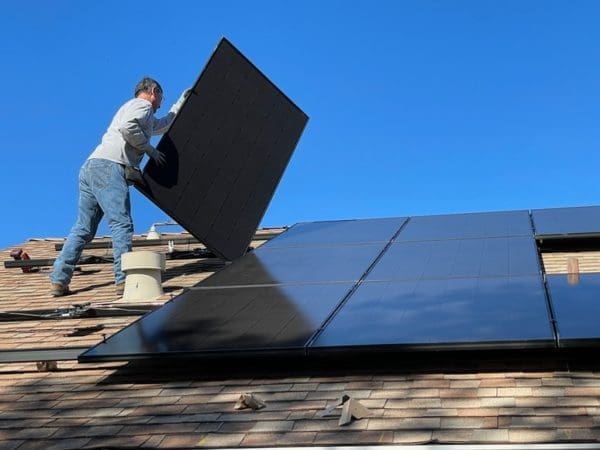Where, When, And How Solar Panels Are Installed

Nowadays, there are many different energy technologies available and solar energy is on the rise among residential consumers. There are a number of companies that sell and install solar panels for residential customers. Find solar panel providers and installations in your region by searching the internet. Major home improvement chains like Home Depot now carry solar panels. Installing solar panels on your home may be as simple as going to a store like this, which can assist you to arrange for expert installation.
Many of these firms may also assist you to get financing for your home’s solar panels. Solar panels from the best solar company are often leased and paid for on a monthly basis. In many cases, there is no money down required, and you may even be eligible for local utility company rebates. Tax incentives, such as the Consolidated Appropriations Act of 2021’s 26 percent solar credit, may potentially assist in paying for a significant portion of the array.
How do grid-tie and off-grid solar systems differ?
Choosing between a grid-tied and an off-grid solar system is the first step in becoming solar. One is better than the other. Grid-tied solutions provided by reputable solar companies in Los Angeles county and nearby areas let you save money on your electricity costs. It’s cheaper than purchasing power from the utility provider. If you have access to the power grid, we highly suggest this option to everyone. A grid-tied system is always the best option if you have access to electricity. Off-grid solar is a way to provide electricity to places that don’t have easy access to mains power. They’re more expensive because of the batteries, but their primary benefit is sending electricity to a distant area. As a third option, grid-tied systems might contain batteries as well as grid-connected ones. Battery backup or energy storage systems are the terms used by solar firms to describe these systems.
There are two key advantages of using a VPN service: Keep a supply of backup electricity on hand just in case (useful if you live in an area with an unreliable power grid or severe weather). You may save energy for later use or sell it if you so want (useful if you live in an area with time-of-use rates, high demand charges, or no net metering). An energy storage system provides an added layer of security and maximizes your energy output. Ultimately, it’s up to you to determine whether the additional freedom is worth the additional cost.
Solar panel maintenance and life expectancy
There is a wide range of solar panel warranties, with a typical estimate of 25 years. Additionally, they don’t need a lot of upkeep; simply make sure they’re clear of debris like dirt, leaves, and snow. Getting expert repairs done by a trusted solar panels company is made easier by warranties, too. It’s well known that solar panels have a “useful life” duration. As a result, the panels progressively lose their ability to generate electricity over time. Around 25 years after installation, you may notice a considerable decrease in the amount of energy you get from the panels. For example, many warranties guarantee 90% panel output for the first 10 years and 80% panel production for the remaining 25-30 year period. But it doesn’t imply they’re worthless right away, and they may continue to create energy for a long time after that.
You may ask when you’ll start generating money from your solar panels because of their long lifetime. The number of solar panels you have, the amount of electricity you consume, and whether you choose to rent or purchase solar panels all have a role in when and how much money you make from a solar array.









